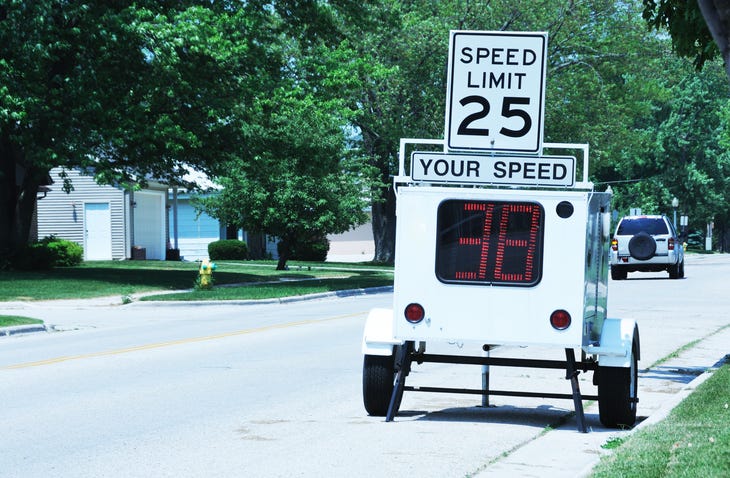
(WWJ) Some lawmakers in Lansing are pushing to let local governments set their own speed limits — a move that would be a big change from Michigan's current formula.
Two Oakland County Republicans — Josh Schriver, of Oxford, and Matt Maddock, of Milford,— are involved with the group sponsoring the legislation
(House Bill 4597), which was introduced over the summer.
It would let cities, counties, townships or villages set their own speed limit with the consent of the locality's top law enforcement official and a public hearing on the matter.
Currently, speed limits are set according to formula, based on how fast 85% of drivers go in that area in good conditions, according to a traffic study. Supporters of this bill argue the formula doesn't address safety concerns like schools and businesses in the area.
According to Schriver, sometimes these traffic studies will backfire.
"In some cases the residents are lobbying for lower speed limits, they get back a result from the traffic study, and the speed limits are raised," said Schriver, in an interview Tuesday with WWJ Newsradio 950's Ryan Wrecker.
Schriver said residents who want lower limits are just trying to keep their neighborhoods safe.
"Some of the main circumstances are situations where you have schools, businesses, police stations, all kind of jumbled up in some localities, and yet the speed limits remain unchanged in unsafe manners."
Another example, he said, comes from more rural communities: "You know, you've got dirt roads out in Oxford, near where I live. Kids are learning how to ride horses and you've got people zipping, you know, 50 or 60 miles an hour."
Schriver said his group has gotten a lot of support from both sides of the aisle for this legislation.
While Schriver said he has heard concerns the bill could allow towns to set up "speed traps" to ticket drivers and generate revenue, he argues that the new law wouldn't allow for that, as a change would require support from residents.
It's still unclear if this bill is likely to become law. The legislation remains stalled in the Republican-controlled Michigan House, with no hearing scheduled.
